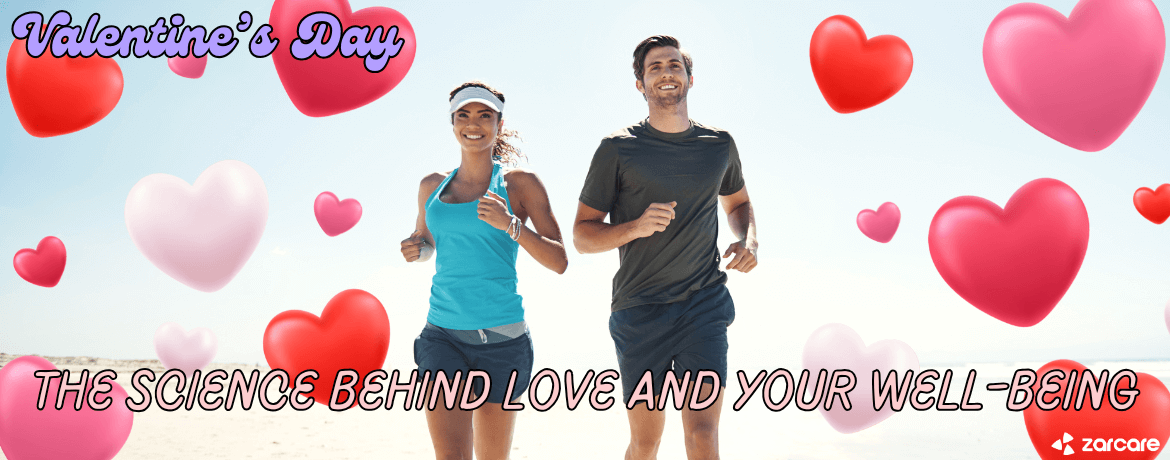Valentine’s Day: The Science Behind Love and Your Well-Being

Valentine’s Day, celebrated annually on February 14th, is a special occasion for South Africans to express their love through thoughtful gifts, vibrant flowers, and heartfelt messages—because nothing says “I love you” quite like a beautiful bouquet of proteas or perhaps a handcrafted token from a local artisan. But beyond the romantic dinners at seaside restaurants or cosy braais with loved ones, many people are blissfully unaware of how profoundly love impacts our mental and physical well-being. As we look ahead to Valentine’s Day, let’s explore the science behind love and discover why those butterflies in your stomach aren’t just from your last romantic outing. At the core of human attraction and romantic love lies a mix of chemicals and hormones that make you feel exhilarated—much like a day spent at the Kruger National Park spotting wildlife! Neuroscientists have identified several key players in this captivating “love cocktail”: Often referred to as the “feel-good” neurotransmitter, dopamine makes you feel on top of the world when you experience romantic attraction. Think of it as the thrill you get from scoring the winning goal in a soccer match or discovering your favourite band is playing in Johannesburg. It’s that rush of happiness that makes you forget all your worries! Known as the “love hormone” or “bonding hormone,” oxytocin is released during physical closeness, be it warm hugs, sharing a lane at the beach, or cuddling on the couch while watching a local series. This hormone helps strengthen emotional bonds, ensuring you feel comfortable sharing experiences—like a delicious potjiekos dinner—with your partner. This neurotransmitter is like your mood’s best friend. When you first fall in love, serotonin levels soar, making you feel as light as a cloud. But those levels can fluctuate as time passes—especially when you start wondering why your partner insists on leaving the cap off the toothpaste. Just remember that love is a journey and comes with its own challenges (and toothpaste debates)! These are your body’s natural feel-good chemicals, released during laughter and joyful activities. Being in love can trigger endorphins, leading to that euphoric feeling reminiscent of a weekend adventure in the bush. Love might be the best workout for the heart, especially when it involves enjoying a sunset over the Cape Winelands. Together, these chemicals create a rollercoaster of emotions that come alive when love is in the air. Who knew that falling in love could feel like the thrill of a bungee jump off the Bloukrans Bridge? Now, let’s discuss how love can impact our mental health—not to be confused with the mental acrobatics required to agree on dinner plans or who gets to pick the next movie. Strong, supportive relationships cushion against stress. Think of them as your personal safety net, helping you handle life’s unexpected turns—like navigating load shedding or the inevitable traffic jam on the N1. Having someone to lean on makes facing challenges so much easier. Romantic love and close friendships give a warm and fuzzy feeling, like finding a hidden gem in the vibrant streets of Cape Town. Studies show that people in fulfilling relationships report greater happiness. So, whether you’re sharing a delightful meal at a local eatery or enjoying a sunset picnic, remember: these moments are fun and nurture your soul! Feeling secure in your relationship helps your brain function better. It’s like finally resolving who will do the washing up. Love creates a grounding environment that fosters creativity and collaboration—perfect for tackling those “what should we do this weekend?” discussions. Love provides safety, supporting emotional regulation during sensitive moments. When you feel loved, you’re less likely to overreact to minor annoyances—such as when someone mistakenly finishes the last piece of biltong. Loved ones offer validation and understanding, essential tools for navigating the ups and downs of life. While love is mainly linked to emotional and mental rewards, it also offers physical benefits comparable to a good gym session—without the sweat and club music. As we gear up for Valentine’s Day, let’s take a moment to appreciate the science that makes love a profound experience while also benefiting our overall well-being. Just remember: love is an incredible journey, so buckle up, and maybe keep an extra box of koeksisters handy for those emotional bumps along the way!The Chemistry of Love
1. Dopamine
2. Oxytocin
3. Serotonin
4. Endorphins
Love and Your Mental Health
1. Stress Reduction
2. Increased Happiness and Life Satisfaction
3. Improved Cognitive Functioning
4. Emotional Stability
The Physical Benefits of Love
